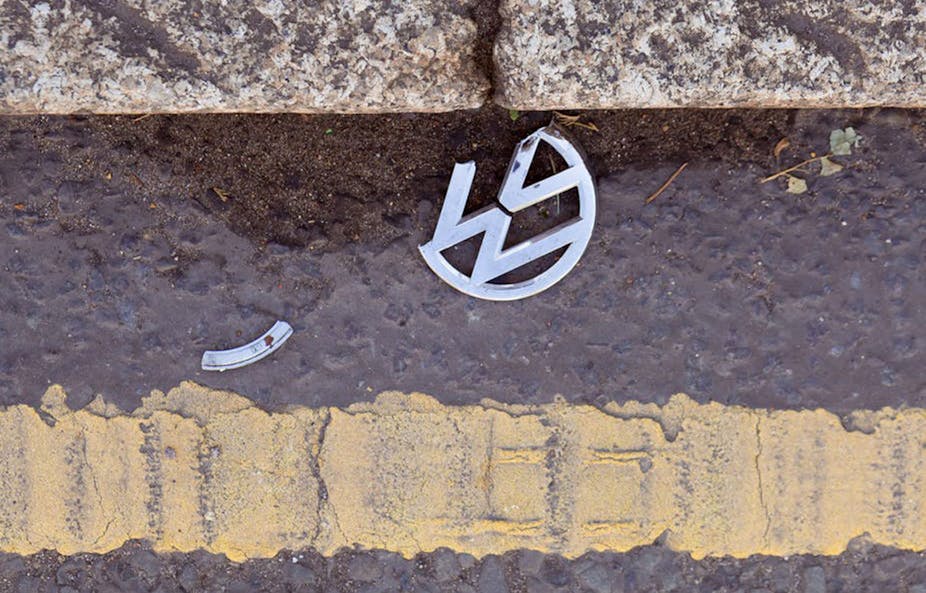The “Dieselgate” scandal is one for the management books. In 2014, Volkswagen was on track to become the world’s biggest car manufacturer when it figured just a little too prominently in an International Council on Clean Transportation study that highlighted striking differences between the emissions of its cars in the lab and on the road. The company was subsequently accused by the US Environmental Protection Agency of installing devices to defeat emissions tests, and 2016 VW agreed to pay nearly $15 billion to settle claims, and the total eventually grew to $21 billion. This year the firm was hit with a 1.2 billion euro fine in Germany, and the battle continues, with US investors demanding compensation for losses they suffered because of VW’s cheating, and a looming suit in the UK.
For a professor of management science, the central question is clear: how could a world-renowned company like Volkswagen knowingly violate US air-pollution standards despite the senseless risks to which it was exposing its reputation and bottom line?
The case method is one possible way of answering this question while avoiding two pitfalls. The first is being too close, making it difficult to avoid total immersion and drowning in details; the second is being too distant, leading to a featureless description of the events. In a special issue of the Revue Française de Gestion, “Management facing the judiciary: The challenges of internormativity” we attempted to track down the truth at the heart of “Dieselgate”, with a particular focus on the conflict between the legal standards produced by public authorities and the managerial standards produced by companies.
A culture of arrogance?
The mystery in front of us, it’s time to look for clues. There are three possible explanations: First, Volkswagen’s “company culture”, rooted in its history since the 1930s. In the rules and regulations game, neither US nor European regulators were taken seriously. The company accepted standards because it knew it wouldn’t be complying with them. The seriousness of lies in American culture had perhaps been underestimated.
The second possible explanation concerns the pre-eminence of VW’s managerial standards over US legal standards: VW’s research and development (R&D) teams knew that the environmental requirements on air pollution were much more stringent in the United States than in Europe. To meet these requirements for diesel cars, which represented only a small share of the US market, would have resulted in an intolerable extra cost for customers; consequently, disregarding legal standards became a technical problem that required a technical solution. A software cheat would become this solution.
The third possibility, which supplements the second one, steers us toward a normalisation of deviance. Not complying with standards – environmental in this case – is not considered a moral issue. Among the community of pollution-control specialists, the rule is actually to break rules rather than comply with them. Consequently, the fraudulent software was considered by VW engineers to be a suitable technical response approved of by their protective management.
These three possible explanations may then be used to organise a discussion around the power of large firms in the face of the legal system, and the questions obviously go far beyond the case of VW alone: Are large corporations above the law? Is their vast power really something that’s inevitable? Are governments defeated in advance, helpless against organisations capable of mobilising resources and skills that they themselves do not have? How can governments regain control and legal procedures be made more efficient? Is the citizen’s power up to the challenges when faced by lobbyists relaying the interests of their clients, which are precisely those same large corporations?

The alliance of NGOs and universities: the new counter-power
One of the unexpected outcomes of this research is the recognition of a new and powerful alliance between NGOs and universities. Their goal is to mobilise knowledge for the benefit of the common good. Had an American university laboratory and an NGO not teamed up to measure emissions in real-life situations as opposed to test-bench simulations, the “Dieselgate” scandal would never have been revealed. This is a foreshadowing of the formation of a community of knowledge that can become a formidable counter-power in Europe as well – provided that counter-investigations can be carried out effectively and alliances forged.
The case of VW also emphasizes the importance of judicial investigation mechanisms, which in this case involved the Environmental Protection Agency (EPA), the FBI, and the US Congress. Their collaboration made it possible to quickly establish VW’s fraud. Such mechanisms have no equivalent in Europe, where the imbalance of power between judges and multinationals is too great to establish civil and criminal liability.
Pandora’s box
“Dieselgate” for VW led to huge fines, settlements and remediation – more than $30 billion up at present. Nonetheless, the losses were quickly absorbed, and the company’s sales bounced back in 2017. But concentrating on its resilience means forgetting the effects that Dieselgate has had and will continue to have on the automotive sector and the industrial world in general.
One defining consequence of the scandal is the end of diesel, once presented as tomorrow’s “clean technology”. Sales are dropping all over the world, and all players have endorsed the gradual phase-out through increased regulations and, in some countries and jurisdictions, traffic restrictions. All manufacturers are therefore affected by this affair, but particularly those that poured a great deal of money into this technology, in particular Mercedes, Renault and PSA. Finally, the scandal increased mistrust of European regulators, accused of collusion with manufacturers.
In this respect, the boards of inquiry set up in Europe and particularly in France that bring together stakeholders under the watchful eye of the media are a sign that politicians and civil society are working to regain control over issues that were previously the exclusive concern of experts. But with this particular Pandora’s Box now open, what exactly we will discover remains to be known.


